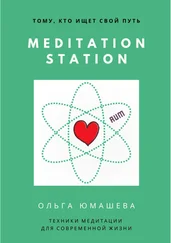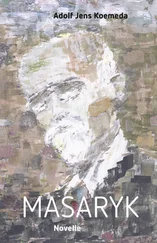David Downing - Masaryk Station
Здесь есть возможность читать онлайн «David Downing - Masaryk Station» весь текст электронной книги совершенно бесплатно (целиком полную версию без сокращений). В некоторых случаях можно слушать аудио, скачать через торрент в формате fb2 и присутствует краткое содержание. Год выпуска: 2013, ISBN: 2013, Издательство: Soho Press, Жанр: Шпионский детектив, на английском языке. Описание произведения, (предисловие) а так же отзывы посетителей доступны на портале библиотеки ЛибКат.
- Название:Masaryk Station
- Автор:
- Издательство:Soho Press
- Жанр:
- Год:2013
- ISBN:9781616952228
- Рейтинг книги:4 / 5. Голосов: 1
-
Избранное:Добавить в избранное
- Отзывы:
-
Ваша оценка:
- 80
- 1
- 2
- 3
- 4
- 5
Masaryk Station: краткое содержание, описание и аннотация
Предлагаем к чтению аннотацию, описание, краткое содержание или предисловие (зависит от того, что написал сам автор книги «Masaryk Station»). Если вы не нашли необходимую информацию о книге — напишите в комментариях, мы постараемся отыскать её.
Masaryk Station — читать онлайн бесплатно полную книгу (весь текст) целиком
Ниже представлен текст книги, разбитый по страницам. Система сохранения места последней прочитанной страницы, позволяет с удобством читать онлайн бесплатно книгу «Masaryk Station», без необходимости каждый раз заново искать на чём Вы остановились. Поставьте закладку, и сможете в любой момент перейти на страницу, на которой закончили чтение.
Интервал:
Закладка:
‘It’s the one I was hoping for,’ Effi told him truthfully. Trudi Dorfner was a character that most Berliners would instantly recognise, but the writer had managed much more than a stereotype.
‘Oh excellent. Well, let’s go through to the studio and have you do a reading.’
Ensconced in front of a microphone, Effi went through one scene, with Henninger voicing the other part.
‘Excellent,’ the producer said again once they were finished. ‘You, I mean, not me. We’ll be broadcasting live, of course. You’ll be okay with that?’
‘I’ve done a lot of theatre,’ Effi assured him. The hours might be a problem-she wanted to spend more time with Rosa, not less-but there was no point in worrying about things like that until there was a contract to sign.
It had all been a little too easy, she thought. After three years of dealing with DEFA and their Soviet backers, Henninger had seemed refreshingly straightforward. Famous last words, she told herself.
She was back home just in time for the DEFA studio car-asking it to pick her up at RIAS had seemed like tempting fate, and she’d resisted the temptation to say she’d make her own way. Journeys through the Soviet sector were normally safe, although women were still sometimes assaulted by drunken Red Army soldiers, and more lasting abductions were far from unknown. Before signing up for this film, Effi and the other Western-sector-based actors working on Anna Hofmann had insisted on being chauffeured to and fro, and the Russians, rather to everyone’s surprise, had conjured up a fleet of old government cars to do the ferrying. The one she was sitting in now had probably taken Goebbels on philandering expeditions.
They reached the new Weisensee studio complex just as the cast and crew broke for lunch, and Effi spent the next hour in makeup, having the years added on. When the girl was finished, Effi smiled at herself in the mirror. This was how she had looked for long stretches of the war, when the world knew her as Erna von Freiwald, dressmaker and milliner. In those days she had applied the makeup herself.
She only had one scene to play that afternoon, but it seemed to take forever. It was with her supposed granddaughter, but the young actor playing the part just couldn’t get her lines right. The girl was nice enough, but not very talented, and Effi found herself wondering how she’d landed the part. A Party official’s daughter, or a Party official’s object of lust. She was growing as cynical as John.
She was just removing the last of her makeup when a DEFA secretary put her head around the dressing-room door, and told Effi that someone from the Soviet Propaganda Department wanted a word before she went home.
‘About what?’ she asked.
The woman shrugged. ‘He’s waiting in the manager’s office.’
‘All right. But don’t let the car leave without me.’ Effi had no idea what the Russian might want, but it was unlikely to be her autograph.
The official in question was one she hadn’t seen before, which made her doubt that he worked for the Propaganda Department-she had attended enough of their receptions over the past few years. He was a short and burly man, probably in his thirties, who quickly stood up as she entered the room, smiled as he offered his hand, and introduced himself as Victor Samoshenko.
‘So how can I help you?’ Effi asked, more abruptly than she intended.
He reached for a large envelope on the desk behind him. ‘This is the screenplay that you’ve been expecting.’
‘Oh. Thank you.’ A Walk into the Future was stencilled on the cover. ‘Is there any reason why it wasn’t sent in the usual way?’
‘Only one. Please, take a seat. Comrade Tulpanov decided that a personal delivery would give someone-myself-the opportunity to stress how important we feel this film will be, and how important your own involvement will prove in making it a success.’
Effi gave him a sceptical look. ‘I’m flattered, of course. But there’s no shortage of good actors in Berlin, so I don’t quite understand why the Minister thinks I’m indispensable.’
Samoshenko’s smile didn’t waver. ‘I think you underestimate yourself, and your, shall we say, symbolic importance to many Berliners, as both a famous film star and a heroine of the resistance.’
Her acting skills, Effi noticed, were obviously neither here nor there. ‘I’m looking forward to reading it,’ she said non-committally, picking up the envelope.
‘There are also two copies of a contract,’ the Russian continued. ‘The suggested fee is of course open to negotiation, but we think it’s generous.’ He paused, while she took a look.
It was probably the most she’d ever been offered for a film, but then Goebbels had been notoriously stingy with actresses who wouldn’t sleep with him. ‘It is,’ she agreed.
‘Payable in American dollars,’ Samoshenko added, as if that would be the clincher.
‘I’ll start reading it tonight,’ she promised. If only to discover why the film, and her participation, seemed so vital to Tulpanov’s Ministry. She started to rise.
‘One more matter,’ Samoshenko said, as she gathered up her bag.
‘Yes?’
‘Your adopted daughter, Rosa.’
There was a way in which he accented the ‘adopted’ that sent a chill through Effi’s heart. ‘Yes?’ she said again, fighting to keep the fear from her voice.
‘She has extraordinary talent.’
‘She has.’ Rosa had been compulsively drawing people and scenes since Effi had inherited her, aged eight, in the past few weeks of the war. One drawing of a Red Army soldier playing with a German child had appeared in a Soviet magazine, and become an almost iconic image of the Soviet liberation. Not in Berlin, of course, where the Soviet-built Tomb of the Unknown Soldier was known as the Tomb of the Unknown Rapist, but almost everywhere else in the civilised world. Stalin’s government had even paid her one tranche of royalties.
‘A talent that can be hardly be nurtured in Berlin today,’ Samoshenko suggested. ‘In Moscow and Leningrad we have world-famous institutes of art which could really help her development.’
Effi could hardly believe it. ‘You’re asking us to send an eleven-year-old girl off alone to a foreign country? You must know what she’s been through.’
‘Yes, of course. And no, not alone. You would be expected to accompany her-we do make films at home, you know. And your husband, too. He’s an American journalist, I understand. I’m sure there are many American papers who would welcome a fully accredited Moscow correspondent.’
Effi didn’t know what to say. She decided to be diplomatic. ‘I appreciate the offer,’ she began. ‘And I know how wonderful Soviet education is, and the value your country puts on culture. Instinct tells me she’s still too young. But I will discuss it with my husband. He’s away at the moment, but when he comes back …’
‘Of course,’ Samoshenko interrupted, still smiling. He shook her hand again, and held the door open.
The car was still waiting outside, along with the chauffeur and three impatient colleagues.
‘What was that all about?’ one of the women asked Effi.
‘My daughter,’ she said, in a tone guaranteed to deter further questions. As they drove back towards the centre of the city, she went through the conversation again in her head. There had been no threats, so why did she feel so threatened? Was it merely the thought of losing Rosa?
She told herself the whole business was more absurd than menacing. Was it possible that Tulpanov’s people didn’t know that the Berlin MGB considered John one of their own? How would they feel about the Propaganda Ministry relocating one of their people to Moscow, where the only people he could spy on was them?
Читать дальшеИнтервал:
Закладка:
Похожие книги на «Masaryk Station»
Представляем Вашему вниманию похожие книги на «Masaryk Station» списком для выбора. Мы отобрали схожую по названию и смыслу литературу в надежде предоставить читателям больше вариантов отыскать новые, интересные, ещё непрочитанные произведения.
Обсуждение, отзывы о книге «Masaryk Station» и просто собственные мнения читателей. Оставьте ваши комментарии, напишите, что Вы думаете о произведении, его смысле или главных героях. Укажите что конкретно понравилось, а что нет, и почему Вы так считаете.












